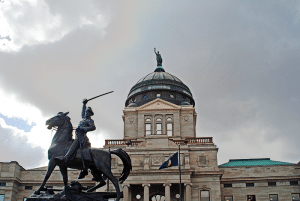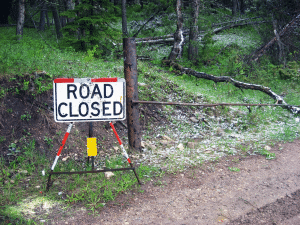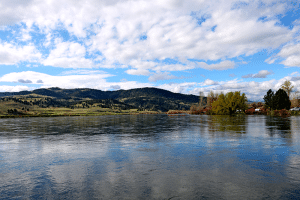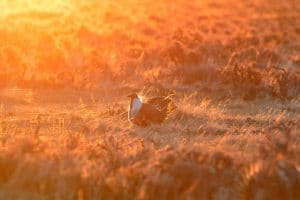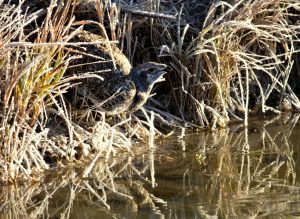
The event was highlighted by a speech from Gov. Bullock. He spoke about the importance of our public lands first and foremost for our quality of life. He talked about how public lands and the outdoor recreation economy they support pump more than $7 billion into our state’s economy, accounting for more than 73,000 jobs. And he talked about how Montanans stepping up to defend our public lands from efforts to transfer or sell them has made a difference in halting bad bills before the Legislature.
The rally drew more than 1,200 people who packed every level of the Capitol. It was put together by a broad coalition of conservation interests and business groups who rely on public lands.
We’re hopeful that the Legislature and Montana’s Congressional delegation hear the message, and not only refrain from pushing bad policies including the transfer of public lands, but also support important conservation measures. Those include renewal of the essential Land and Water Conservation Fund on the federal level, and not attacking the Habitat Montana program on the state level. If the decibels in the courthouse are any indication, the message should have been heard loud and clear.
But the rally wasn’t the only wildlife measure to be heard this week. The House Fish, Wildlife and Parks Committee heard two bills on Thursday that affect licensing for landowners who provide public hunting access to their property. The first heard was HB 104, sponsored by Rep. Denley Loge, R-St. Regis. It gives landowners who participate in the popular Block Management hunting access program the required prerequisite hunting licenses to apply for special permits. It’s a simple clean-up bill to show appreciation to landowners who welcome the public.
The second was HB 43, which would expand a program that gives landowners a non-transferrable elk license or permit for at a minimum allowing four public hunters onto their property. This program already exists, but hasn’t been used much, and expanding it to include the license in addition to special permits is being done to try to grow it and gain more public hunting access to private land. The last agreement Montana FWP worked out allowed a total of 49 public hunters for the one landowner permit issued. MWF supported both of these bills.
Expect the bills pertaining to wildlife, public lands, habitat, and public access to start coming quickly in the coming weeks. For more information, view MWF’s bill tracker. For more frequent updates become a member of MWF’s Legislative Action Team.
Nick Gevock is the conservation director for the Montana Wildlife Federation.

